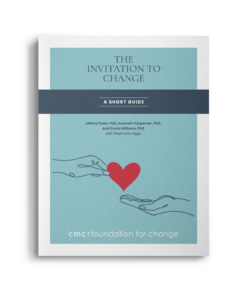I recently had a severe headache that lasted for days.
As a therapist who specializes in treating substance use problems and trauma, I spend my days engaging with other people’s pain and helping them live through it. To be effective, I try to practice what I preach: exercising, connecting with my emotions, getting enough sleep, and relying on my family and friends.
I’m not always successful though! When my headache arrived, my initial response was to keep moving, pushing through as I have in the past. But this time, I only felt relief when I finally started to cry. As I wept, I realized I had been living with a sense of grief that I had not made space for. I could hardly believe how sad I was and that I had failed to notice my emotions or tend to them. The grief took my breath away.
♦
This global pandemic has caused enormous physical and emotional suffering, and grief presses in on all of us. Often, we cordon off our emotions in order to hold our lives together.
In my profession, I know that staying in touch with difficult emotions is what lets me be fully present with the people I care about. Still, I have often found myself trying to avoid my pain, overworking and getting lost in my daily routine.
But, as I recently experienced, this avoidance doesn’t work forever! Strong emotions come through eventually. Even if we don’t express our feelings, our bodies will – through high blood pressure, stomach aches, chronic pain and yes, headaches. You may have noticed some of these physical symptoms in yourself over the past 12 months. You may also have noticed yourself avoiding difficult emotions, whether through your phone, through substance use, or through overworking like me.
In each case, the truth remains the same: avoiding our grief means we continue to suffer, while damaging our bodies and relationships over time. Grief is meant to slow us down. It asks us to take time to look after ourselves, and for those we love to do the same. If we don’t tune into it, we miss out on an opportunity to show our loved ones that we need support and care. We may want to shut out our pain to take care of others – but ironically, if we all ignore our grief, it ends up keeping us apart.
♦
So many of us have lost loved ones. Our medical, mental health, and nursing home providers have gone beyond their emotional and physical limits. Our teachers have put their lives at risk to take care of our kids. Our first responders have been on the front lines of this crisis for an entire year. People have lost jobs, financial security, and hope for the future.
If you are someone who has pushed grief away, I encourage you to find ways to feel it. Sitting with our shared sadness and feeling the impact of the last year will be painful and unsettling. Of course it will. But it will let you tap into the compassion that is so badly needed for yourself and for those around you.
Let yourself pause to recall the past year of your life. Remember the things you thought were certain, which may have been taken away. Sit with the changes you have had to make, and the changes that you had no control over.
As you do this, you may notice yourself shifting towards anger or looking for someone to blame. There is space for these feelings as well. But for now, try to bring yourself back to the sadness. How can you use it to connect with the people around you?
Talk to someone who has lost a loved one to COVID-19. Talk to someone who is missing their family and friends. Check in with someone in your community; ask them what they are feeling and what they need.
Really slow down and listen, if you can. Notice your response to another human’s suffering. If you feel judgement, or a desire to ‘fix the problem,’ try to set these reactions aside. Explore what it is like to simply be present and share another person’s pain. That moment of connection may help them move through another day.
♦
It is true that while many work to honor the loss of the past year, others continue to minimize it. They may promote narratives that pull our attention away from our collective heartache, dividing us from one another. This division extends our pain and prolongs our grief.
I hope that you remain united with those around you through the recovery process.
None of us knows what the future holds. Across the globe, and for sure in our country, we are confused and polarized. I hope in the months to come we acknowledge our pain and welcome our tears. It’s okay to cry. In fact, it’s crucial for our country’s mental health.




